Fighting racism in triathlon – how to support diversity, equity and inclusion
Initiatives and ideas to support diversity, equity and inclusion on an individual and organization level
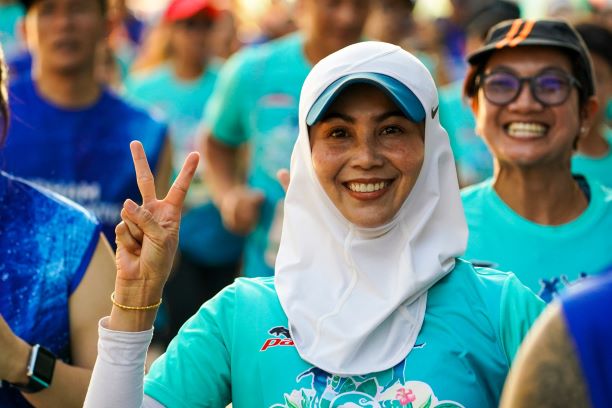 Photo by:
Kevin Mackinnon
Photo by:
Kevin Mackinnon
Despite triathlon’s popularity, according to Ironman, less than one percent of participants in Canada and the U.S.A. are Black. In 2020, anti-racism has become a global topic of conversation to help people of colour with the systemic challenges they face. It is a time of change and, for triathlon, there are many initiatives and ideas to support diversity, equity and inclusion on an individual and organization level.
Here’s how not to do it: in June, Ironman’s Facebook group, Women for Tri, shocked thousands of people when it deleted comments made by Black women who expressed concerns for their personal safety while training. Following the death of George Floyd, they were turning to their tri community for support, but group administrators said the comments were inappropriate.
However, Facebook comments of members who disagreed with the Black women were not deleted. The situation quickly spiralled and the administrators shut down the page and declared a “pause” in activity. In response, thousands of upset members left the group and board members resigned because Black women’s voices were silenced as if they didn’t matter.
From an anti-racism perspective, how could this situation have been handled better? We asked Dr. Lisa Ingarfield, Co-Founder of the Outspoken: Women in Triathlon Summit, Co-Founder of Shift Sports, and USAT certified triathlon coach. She said this wasn’t an isolated case of deleting Black comments on social media, and the root problem is systemic, not just than the actions of a few people.
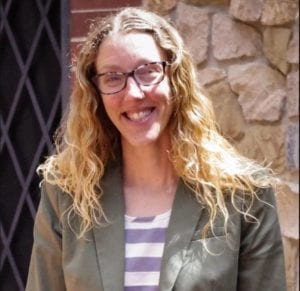
Noting that the Facebook group’s page is administered by white women, Ingarfield explained that, “White women’s experience is not universal, and so to have rules, written by white folks, that assume triathlon is not a political space, or that “social issues” do not affect the lives of triathletes, and their participation in or exclusion from triathlon, is born of a white supremacist thinking.”
“Because race does not factor into most white people’s decisions about training for and racing triathlon, it excludes a very real issue for triathletes of colour,” she continued. “A better response would have been to have a diverse group of women who are paid to run the group and are trained to do so; to not have a rule that says political and social issues will be taken down; and not to remove Black women’s expressions of hurt and anger about their exclusion from the sport and the Black Lives Matter (BLM) movement.”
“Instead, moderators should be removing explicitly and implicitly racist comments,” says Ingarfield, “and there should be a policy that expressly addresses hate speech and that comments denigrating or harming members will not be tolerated.”
B.C.’s Mikey Ross has received inappropriate comments while participating in sports. As a competitive runner Ross heard “unacceptable” comments about himself, others and about entire clubs at races, finish lines, award ceremonies and more. This was before he became a triathlete – when Ross obtained coaching credentials, he wanted to work in a club that would declare inclusivity “clearly and loudly and proudly.”
As one of the founders of the Abbotsford Triathlon Club (ATC) in B.C., Ross created a Code of Conduct that the club adopted from its start and all members sign-off on it. “I like to see the existence of a comprehensive code as empowering all members of a sports organization to feel more confident about being respected for their unique qualities, whatever that uniqueness is,” says Ross.
Now in their sixth year, ATC’s 50+ membership is diverse: LGBTQ members, folks from other ethnicities, male/female/transgender/gender fluid, an age range of 21 to late 70s, wealthy and “just scraping by,” plus those who have English as a first or second language.
Roberto Boada was born in Ecuador and he joined ATC almost two years ago. “The code of ethics definitely sets a frame of social expectations,” he says. “ATC’s members are focused on the experience and the growth of the athletes as principal value, not leaving room for boundaries created for ethnicity, gender orientation or age. I have been welcomed in multiple events, competitive and social, by the club and felt the same level of inclusion by other members. And, more important, I have the opportunity to interact with newer members and share the same level of enthusiasm and energy that was granted to me.”
Another member offered this perspective: “I think the fact that we have a code of ethics establishes a baseline for behaviour and interactions that is higher than if we didn’t. It gives both individuals and the club the ability to call attention to infractions, and to expect/demand personal accountability. I think the code of ethics also gives the club and individual members a way of teaching, or guiding, that lifts above the personal by establishing community values.”
Ross says it is essential to make sure that as a club evolves with some members leaving and new members joining, that the code is seen and used as a “living document” with a practical and important purpose. “Assuming that your members are familiar with any code of conduct or ethics isn’t the way to go,” says Ross.
In effect, the code serves as the club’s policy. Both Dr. Ingarfield and her colleague Dr. Gabriela Nuñez, triathlete and Associate Professor in the Department of Chicana and Chicano Studies at California State University, say that effective policies are essential to halting racism.
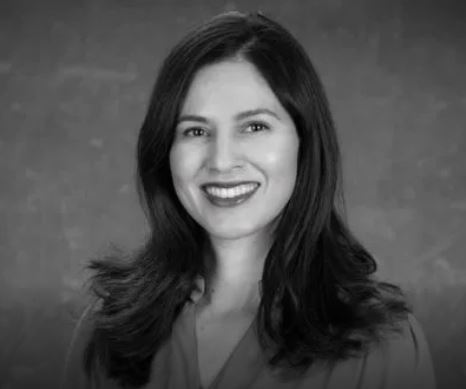
“Focusing on policy, rather than focusing on groups of people, and changing policy, is challenging work,” says Nuñez. “Each of us has some form of power from our various positions as athletes, coaches, board members in sports organizations, race organizers, etc.”
Dr. Ingarfield and Dr. Nuñez are working together on a book called Racing Triathlon that studies the connections between systemic racism and triathlon in the U.S. and how to move toward a more anti-racist culture in the sport.
Related: Triathlon’s Diversity Challenge
“I think it’s especially important for us to see triathlon as an extension of our society,” says Nuñez. “I speak from a U.S. context, but all sports are an extension of the institutions in which they’re located. As we research for our book, we’re learning that the scholarship in sociology, history and cultural studies all show that there is no separation between structural racism in society and discriminatory practices in leisure and professional sports. This means that triathlon is not a ‘colour-blind’ space of refuge that is somehow outside of politics and social justice issues. Describing it as such is a racist perspective.”
Nuñez and Ingarfield both feel that a shared understanding of definitions and concepts is necessary to have a conversation about how to be antiracist. They refer to high-profile activist Ibram X. Kendi and his book, How to Be An Antiracist, where he writes, “Definitions anchor us in principles. This is not a light point: If we don’t do the basic work of defining the kind of people we want to be in a language that is stable and consistent, we can’t work toward stable, consistent goals.”
Nuñez further explains, “Rather than deny our racism, which so many of us do despite the colour of our skin, focusing on the definitions better allows us to discuss when we are actually engaging in anti-racist work and when we are upholding racist policies.”
Ingarfield offers these definitions as examples:
- Anti-racism – the active engagement in the work to dismantle racist systems of power and policy. She adds that Kendi defines antiracist as “One who is supporting an antiracist policy through their actions or expressing an antiracist idea.”
- Racism – a system of policies and ideas that discriminate against non-white racial groups in both implicit and explicit ways.
- Anti-oppression – a framework based on ending oppression in all its forms; actively engaging in work that exposes the structural reasons for the continued marginalization of groups of people and how those marginalization experiences intersect with each other.
- Intersectionality – the recognition that our identities intersect with each other creating unique experiences of oppression and privilege. For example, a woman of color experiences oppression based on her gender and racial identity. A white person with a disability experiences racial privilege through whiteness, but oppression through their disability.
- Equity – To be antiracist is to recognize that equal does not always mean equitable. Equity means to acknowledge there is a substantial history of exclusion that has impeded the progress for Black and Indigenous People of Colour (BIPOC) in the U.S. context and we must work to redress the imbalance. To use a sports phrase – the playing field has not and is not equal in sport and equitable solutions seek to level the playing field while also accounting for historical exclusion.
According to Nuñez, Kendi also says, “The good news is that racist and anti-racist are not fixed identities. We can be racist one minute and anti-racist the next. What we say about race, what we do about race, in each moment, determines what—not who—we are.”
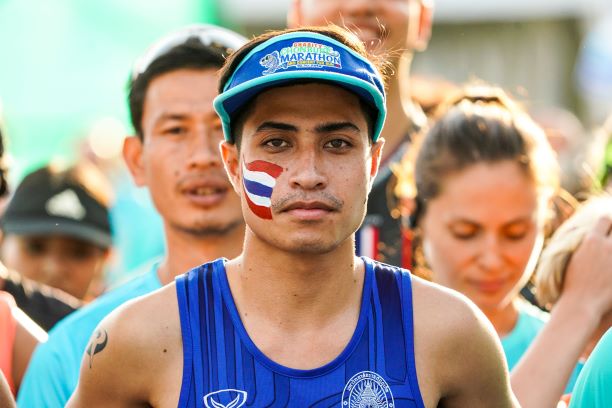
“Whiteness may be unimportant to white people because they are not reminded of their race every day and their race doesn’t put them at danger of harassment or even death,” says Ingarfield. Nuñez agrees: “The murder of Ahmaud Arbery is one recent example that painfully shows the life and death dangers for BIPOC athletes who are targeted in public spaces while exercising,” she says.
“Research also shows that BIPOC cyclists, even children, are more targeted by police. Sport scholar Kevin Hylton’s research details the higher citations of cyclists in Black and Latino neighborhoods, underscores the reality of white privilege for cyclists, and documents the policing of BIPOC cyclists at bike stops as a pretext for other searches. So, while we can discuss how to make triathlon more affordable, we need to change the policies that allow police and civilians to target BIPOC athletes.”
While these are American references, recent news stories have made Canadians aware that similar police actions are happening here too.
We asked Nuñez and Ingarfield for examples of what individuals and organizations could do to increase diversity and proactively support anti-racism in triathlon. Here’s what they suggested:
- Actively recruit and hire more people of colour for coaching and leadership roles
- Include comprehensive training for diversity, equity and inclusion in any coaching certification program
- Provide coaches with ongoing support and mentorship on these same issues
- Have diversity in the members of coaching advisory committees
- Stop saying you don’t see colour, or that race is unimportant to you, because this viewpoint accepts the racist status quo and erases the lived experiences of BIPOC triathletes
- Consider that saying you’re “not racist” suggests that racial problems are rooted in groups of people, rather than power and policies, and this allows racial inequities to continue
- Acknowledge that racial disparity exists and do not minimize the experiences that athletes of colour share with you
- Speak up when you see microaggressions or other forms of racist exclusion
- Educate yourself to see, name and call out the disparate effects on BIPOC triathletes of seemingly innocuous or “equal” policies
- Draw from a wider perspective than white, male coaches when designing policies or best practices
- Ensure publications, websites, newsletters, social media etc., feature diverse people including women, folks with disabilities, people of colour and transgender athletes
- Blogs, articles, podcasts or events about coaching should ensure that BIPOC, women, trans people and disabled people are tapped for their expertise
The Mighty Mujer Triathlon was started by Gabriela Gallegos with the express intent of engaging women of color. “Because she employs a diverse group of people, her marketing and event organizing practices are embedded with a diversity of thought, and her team offers ongoing workshops and training opportunities for women signed up to race,” says Ingarfield. “Gallegos’s races, therefore, have a further reach than many other triathlons run and owned by white men. I am not saying white men cannot enact an excellent event with a racially diverse athlete participant pool. They just have to think about it and often we find they don’t. Triathlon can be quite the echo chamber.”
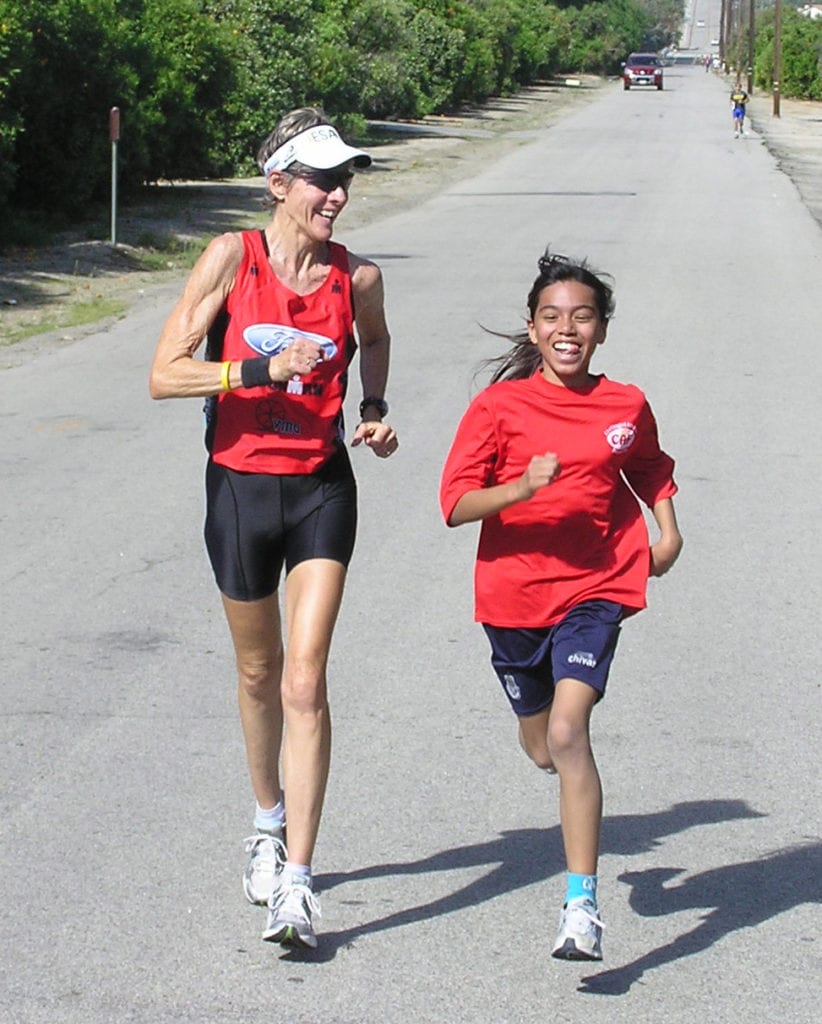
If creating a more diverse and inclusive triathlon community sounds trivial compared to Black Lives Matter issues, you need to meet Isi Ibarra. Her opportunity to join triathlon became a life-changing experience. At 10 years old, she joined icon Cherie Gruenfeld’s Exceeding Expectations, a triathlon training program aimed at inner-city schools that includes mentoring and support to complete high school and a post-secondary education.
Related: How Exceeding Expectations changed Isi Ibarra’s life
Ibarra writes, ‘Of course, Cherie’s vision for members of Exceeding Expectations is bigger than that of becoming star athletes. It is to become so accustomed to setting goals that it will become part of all areas of our lives.’
Now Ibarra serves as a role model for others in the program. ‘It is great to see my role come full circle. It has shown me that I should always strive to be the best version of myself because it might help someone else. With all the support I have received from Exceeding Expectations, giving back is a responsibility that I am honored to have.’
Wouldn’t it be great if Canada’s Kids of Steel program included this kind of outreach to kids who otherwise couldn’t be part of triathlon? Nuñez says that oftentimes we get stuck on the idea that BIPOC athletes simply cannot afford to participate. Some can, some can’t. But the bigger problem is viewed as systemic with factors that keep participation numbers so low.
Do you remember how amazing it felt to finish your first triathlon? Ibarra sure does and she’s passing that inspiration forward to others. If we followed her example and used our resources and influence, the definition of “personal best” could be expanded to include not just our fastest times, but also our proactive inclusion of those who find it really challenging to be part of this amazing sport.
This story originally appeared in the September, 2020 issue of Triathlon Magazine Canada.
